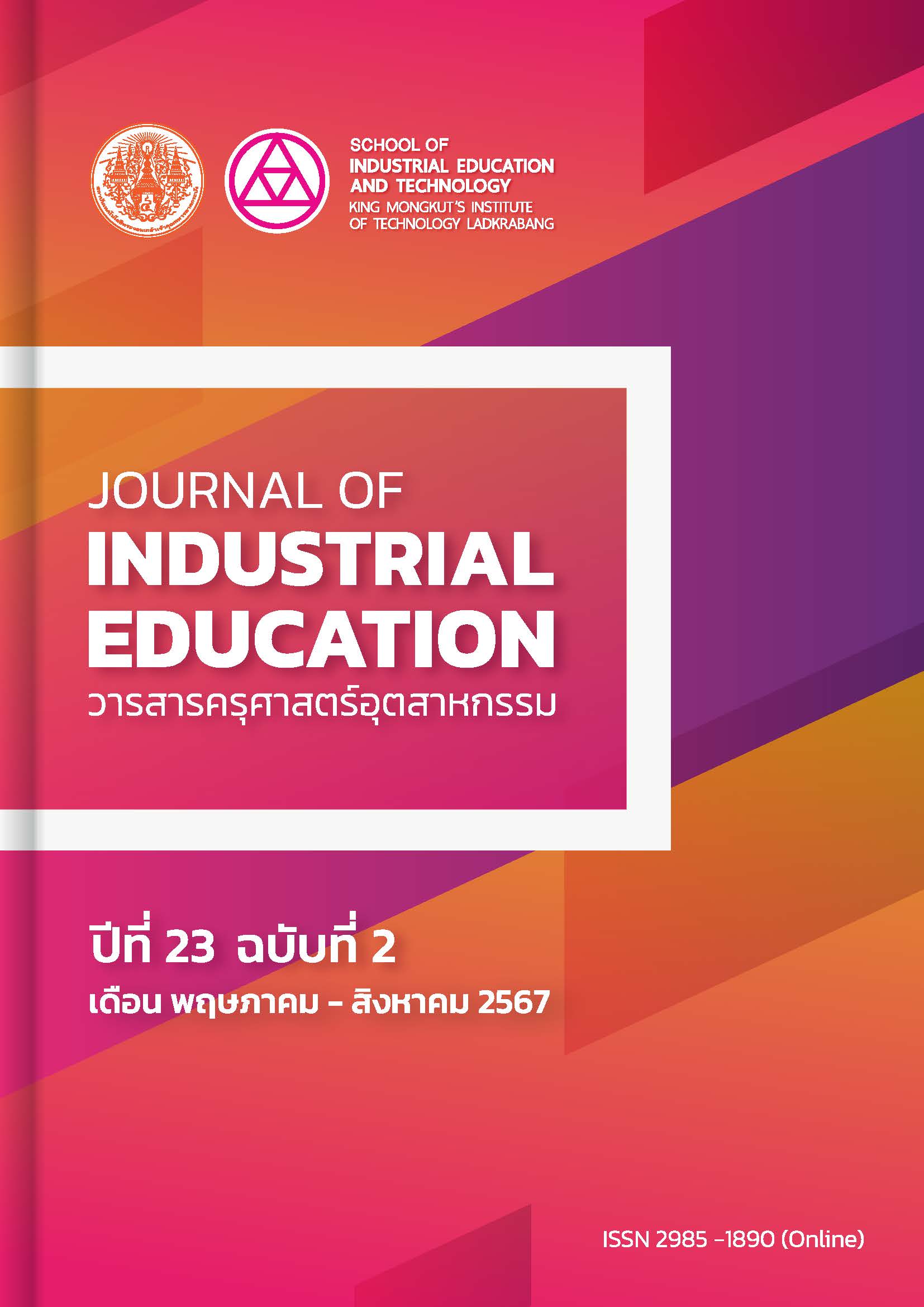A STUDY OF THE CURRENT SITUATION AND FUTURE EXPECTATIONS REGARDING THE COMPETENCY OF LABORS WITH BACHELOR'S DEGREES IN ESTABLISHMENTS IN THE AUTOMOTIVE PARTS MANUFACTURING INDUSTRIES
DOI:
https://doi.org/10.55003/JIE.23210Keywords:
Labor Competency, Automotive parts industry, Current situation, Future expectations, Gap analysisAbstract
This research was to study the current situation and future expectations regarding the labors competency with bachelor's degrees in establishments in the automotive and automotive parts manufacturing industries. The gap between the competencies of labors was analyzed with current bachelor's degrees and the competencies of labors with bachelor's degrees that enterprises expect. Data was collected by questionnaire from 80 employees in the establishment, and automotive parts manufacturer No. 1 and No. 2. Employees are from 20 establishments including executive administrators at the department head level and above, engineers, and operator with at least 5 years of experience. Establishments that have signed a cooperation agreement to work integrated learning of King Mongkut's University of Technology Thonburi in Bangkok and perimeter by purposive sampling. The research was found that the labors competencies who graduated with bachelor's degrees in today's establishment’s knowledge in performing one's work have the highest average of 3.720, at the highest average of 3.800 for the area of skills and learning skills, and at the highest average of 4.080 for characteristics of social responsibility. The results of the gap analysis between the labors competencies with bachelor's degrees in today's establishments and the expectations regarding the labors competencies with bachelor's degrees in the future were found that the averages were different and statistically significant at the .05 level in all aspects. The results have the highest average expectation of 4.440, followed by skills with an average of 4.160 and knowledge with an average of 3.972, respectively.
References
Apriyani, D., Krisnawati, M., Sudana, I. M., Angraeni, N. S., & Setiawati, T. D. (2023). Improving student competence through industrial internship learning. In A. Kusumastuti, S. Anis, A. N. Hidayanto, S. Nurmasitah, A. Atika, D. Apriyani, T. A. Achmadi, & S. Sudiyono (Eds.), Proceedings of the 4th Vocational Education International Conference (VEIC 2022: Part of ASSEHR Series) (pp. 46-52). Atlantic Press.
Asean Automotive Federation. (2022). Asean Automotive Federation 2022 statistics. https://www.asean-autofed.com/files/AAF_Statistics_2022.pdf
Bank of Thailand. (2021). Thailand labor market restructuring (White Paper). EEC and Bank of Thailand. (in Thai)
Donlao, T., Fuangchan, S., Chirinang, P., & Kromadit, V. (2021). The future of Thai workers in changing economy. Journal of Administrative and Management Innovation, 9(1), 35-44. (in Thai)
Kearney, A. T. (2017). Technology and innovation for the future of production: Accelerating value creation. World Economic Forum.
Khampirat, B., Pop, C., & Bandaranaike, S. (2019). The effectiveness of work-integrated learning in developing student work skills: A case study of Thailand. International Journal of Work-Integrated Learning, 20(2), 126-146.
Kontip, W. (2021). Competency developing of smart hand-on engineers for supporting sustainable industry 4.0 [Master’s thesis]. Rajamangala University of Technology Phra Nakhon. (in Thai)
Leingchan, R. (2018). The automotive industry of the future (Research Intelligence Report). Krungsri Research. (in Thai)
Limphothong, S. (2022). Development of strategic leadership model for Thai industial factories. Journal of Social Science and Buddhistic Anthropology, 7(9), 61-79. (in Thai)
Limrueangrong, P., & Thaweepaiboonwong, J. (2021) The influence of human resource development on employee performance: The mediating role of competency. Journal of Humanities and Social Sciences, 14(27), 75-86. (in Thai)
Office of the Secretariat of the Education Council. (2022). Study and analysis of methods for developing high-performance workforce that are linked with area based development (Report). Author. (in Thai)
Organization for Economic Co-operation and Development. (2018). the future of education and skills: Education 2030. https://www.oecd.org/education/2030/E2030%20Position%20Paper%20(05.04.2018)
Organization for Economic Co-operation and Development. (2020). Thailand’s education system and skills imbalances: Assessment and policy recommendations. https://www.oecd-ilibrary.org/economics/thailand-s-education-system-and-skills-imbalances-assessment-and-policyrecommendations_b79addb6-en
Thuan-nadi, A. (2016). Analysis of demand for qualitative labor of industrial sector in chonburi province under liberalization of the ASEAN economic community. Journal of Economics and Management Strategy, 3(2), 35-49. (in Thai)
Tongsuar, W. (2023). Looking at the direction of the Thai automotive parts industry in 2023- 2024, automobile production will recover support business growth continuously (Research Note Report). Krungsri Research. (in Thai)
Wiriyasakulthon, J., Maphut, C., & Kosaiyawat, S. (2020). The scenario of competencies-based for graduate Thai students. Journal of Education and Social Development, 15(2), 81-91. (in Thai)
Yongpisanphob, W. (2022). Business/Industry trends 2023-25 automotive parts industry (Report). Krungsri Research. (in Thai)
Downloads
Published
How to Cite
Issue
Section
License
Copyright (c) 2024 Journal of Industrial Education

This work is licensed under a Creative Commons Attribution-NonCommercial-NoDerivatives 4.0 International License.
"The opinions and contents including the words in papers are responsibility by the authors."
"ข้อคิดเห็น เนื้อหา รวมทั้งการใช้ภาษาในบทความถือเป็นความรับผิดชอบของผู้เขียน"



